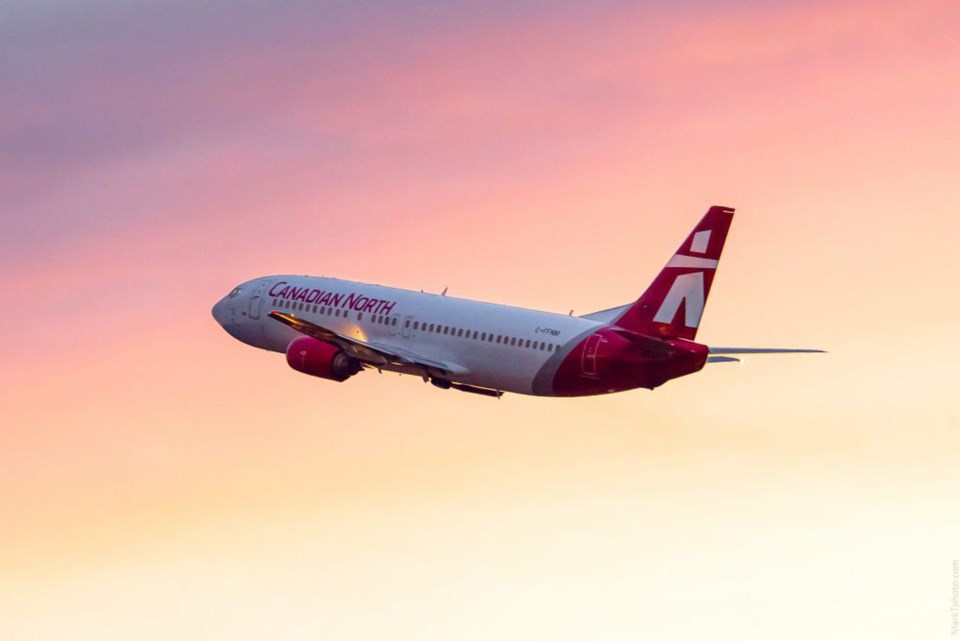The federal government is committing $75 million – and possibly more – to establish agreements with provinces and territories to ensure 140 northern and remote communities have adequate flights in and out despite the drastic drop in passenger demand that has resulted from the COVID-19 pandemic.
Transport Minister Marc Garneau, Northern Affairs Minister Dan Vandal and Indigenous Services Minister Marc Miller announced the program Aug. 6. The intention is to develop bilateral agreements with provinces and territories to ensure continuity of air services to remote communities for at least six months. The federal government says it is willing to put up $75 million for the first six months of subsidized service once agreements are signed and up to $99 million more over the next 12 months, if needed.
“While we continue to work together to limit the spread of COVID-19, we must also ensure remote communities continue to have the air connectivity they need for essential goods and services, travel and business,” said Garneau. “Our work with the provinces and territories on these measures will allow for reliable air services to keep remote communities connected to the rest of the country.”
The 140 eligible communities across Canada include 19 in Manitoba. Most of those – such as Brochet, God’s Lake Narrows, God’s River, Island Lake, Lac Brochet, Oxford House, Red Sucker Lake, Shamattawa, St. Theresa Point, Tadoule Lake and York Factory First Nation – are remote First Nations without year-round road access. Others, such as Norway House, Cross Lake and South Indian Lake are serviced by highways, gravel roads or ferries. The list of Manitoba communities also includes Churchill, whose only land link to the rest of Manitoba is the Hudson Bay Railway.
“Flights are an essential link for fly-in and remote First Nations, Métis and Inuit communities,” said Miller. “This funding will go a long way in ensuring that fly-in communities have the essential services, goods and equipment they need to prevent and respond to any outbreak of COVID-19. Canada will keep working hard to ensure continuity of services.”
The federal government says it would provide a fixed funding amount to each jurisdiction with remote communities based on historical passenger volumes and the minimum service level required to deliver essential services, which include the continued supply of food and medical materials, as well as transportation of medical personnel, first responders and laboratory samples.
Small air carriers who service remote communities have seen the number of passengers decline by more than 90 per cent since the pandemic began, the federal government says. Revenue from these passengers previously helped cover the costs of delivering essential cargo on the same planes.
The government of Nunavut began paying Canadian North and Calm Air $2.25 million a week beginning March 30 to ensure that they would continue to service the region, which has 25 remote communities, according to an April 16 report by the Nunatsiaq News, and had spent $24 million to ensure the airlines kept serving Nunavut by the end of June. As part of the subsidization agreement, Calm Air and Canadian North gave the Nunavut government and Transport Canada access to their financial information. The federal government also contributed $5 million toward those airlines in April, while Canadian North CEO Chris Avery, who told the Nunatsiaq News in June that the COVID-19 pandemic was worse for airlines than 9/11, said the company has also received subsidies from the governments of Quebec and the Northwest Territories.
“From day one of this pandemic, our government has been working with partners to respond to the unique needs of northern and remote communities,” said Vanadal. “This support is positive news for all northerners and is a result of continued collaboration and partnership. This will ensure supply chains remain open to those living in isolated Nutrition North Canada eligible communities, who depend on air transportation for the regular delivery of perishable nutritious foods, personal hygiene products and other essential items.”




